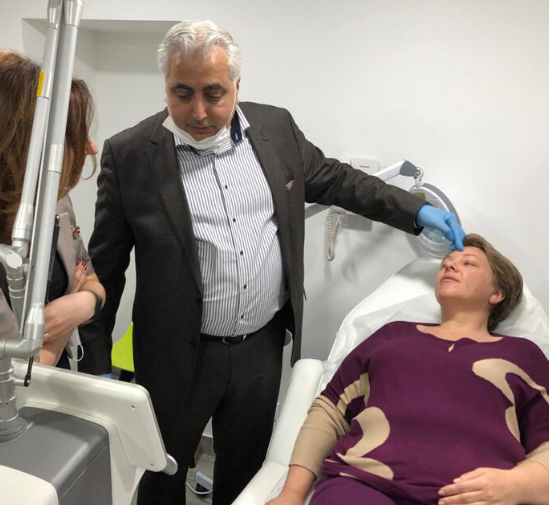 21st May 2021
21st May 2021
Sunscreen And SPF: Why Your Skin Needs Protection
With spring desperately trying to make an appearance and summer right around the corner, we’ll all be enjoying the sun in no time. As easy as it is to throw on a sundress or a pair of shorts before leaving the house, it’s even easier to remember that your exposed skin needs protection from the sun’s harsh rays using sunscreen and SPF. Our bodies love vitamin D but all that sun can cause long-term damage if our skin remains unprotected.
What Exactly Is SPF?
SPF stands for sun protection factor and refers to the level of protection a sunscreen (suncream) or moisturiser offers your skin. Dermatologists recommend using products with SPF 30 or higher as this will provide your skin with protection against any of the sun’s adverse effects. That means any foundations or other skincare products containing SPF 10 will not provide adequate protection and will need to be paired with other products.
Who Needs To Use Products With Higher SPF?
Products with high levels of SPF are suitable for anyone, but those with pale skin need to pay careful attention to the products they use. Skin colour is determined by a pigment called melanin. Melanin naturally provides the body with a level of protection against the sun’s UV (ultraviolet) rays. Those with lighter skin have less melanin, and therefore, less protection against UV rays. However, this does not mean people with darker skin do not need to wear Sunscreen and SPF as the skin’s natural defences always need to be boosted.
SPF protection is important for everyone but if you have a lot of moles or a family history of skin cancer, you need to be very careful when it comes to sun exposure.
Why You Should Be Using SPF 365 Days A Year
The sun, as we know, doesn’t show its face every day of the year, but that doesn’t mean we should be skipping our daily dose of SPF. The sun’s rays can penetrate clouds, so even if you’re popping out on a cloudy day, you should be using products that provide you with protection.
You don’t necessarily have to cover every inch of exposed skin but your face and neck are incredibly important, especially if you use skincare with active ingredients. Ingredients such as AHAs (alpha-hydroxy acids), retinols and common acne-fighting heroes like salicylic acid and benzoyl peroxide cause photosensitivity, making your skin extra sensitive to light and more susceptible to damage.
Even if your working-from-home setup involves a lovely sunny spot by the window and you have no plans to leave the house – you’re still at risk. The sun can penetrate glass, so make sure you don’t skip the SPF step of your skincare routine even if you’re staying put. The skin is the body’s largest organ and protecting it is as easy as adding one product to your morning skincare routine.

Treatment For Sun-Damaged Skin
Prolonged sun exposure, paired with a lack of protection against it, will eventually lead to signs of ageing such as saggy skin, wrinkles, fine lines, and dark spots appearing or becoming more pronounced. If your skin has been sun-damaged and you show no signs of skin cancer, cosmetic dermatology can help improve your skin.
Dr Firas Al-Niaimi has years of experience and will be able to determine the best course of action for you and your skin. He will create a bespoke treatment plan to guarantee the best results based on what you want to achieve and as he is one of the most respected figures in the industry, you will be in safe hands.
If you think you could have been more liberal with the sunscreen and SPF over the years and want to improve the quality of your skin, get in touch with Dr Firas today by calling 0208 191 8871, emailing info@drfirasalniaimi.co.uk or visiting his website. You can also follow him on Facebook and Instagram.
Back to blog





